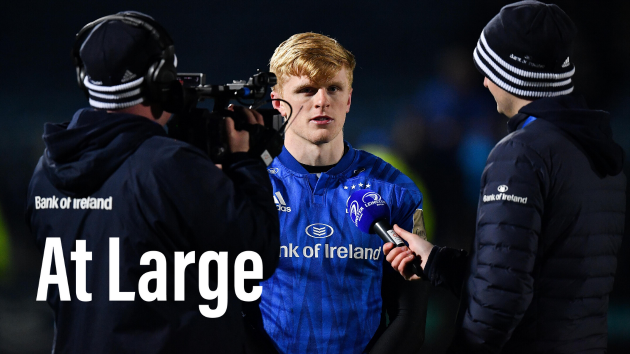The cashflow crisis caused by the Covid-19 pandemic will make external investment more appealing for many rights holders but some will be weighing up difficult questions about control and their future direction.
What is an industry worth in storage?
Sport’s partial reanimation over the weeks ahead will not obscure the fact that so much of what drives its revenues will lie dormant for a while yet. There will be no tickets sold to live events in most countries for several months, to use a more optimistic estimate, and none of the attendant income that comes with fans being at physical venues. For a lot of organisations, that means it will not be possible to run live events in that period.
Whether or not it all comes roaring back when the Covid-19 pandemic lifts, any business whose primary assets are rooted in its relationship with fans – most of them in sport, in other words – will face lean times and an anxious wait. The world has a cashflow problem just now and organisations of cultural importance are no less vulnerable than anyone else to its effects.
This is a situation that has placed an enormous strain on companies across the industry – witness digital sports broadcaster DAZN’s reported call for new investment, its head-down charge for growth interrupted by a lack of live sport – but for rights holders it has created a real quandary. They must decide what to protect, what to discard, what arguments they can make for whatever state assistance is available. Even among those with an appetite for innovation, the resources to push through meaningful change might be limited.
Any possible injection of capital, then, will be under consideration, and it is no particular surprise to see venture capital and private equity funds beginning to mobilise. Groups like one-time Formula One owner CVC Capital Partners were already exploring opportunities in sport but they are very likely find more willing partners in the months to come. The first question is where they will look for them.
Over the past week or so, CVC has been particularly active. On 22nd May it confirmed the acquisition of a 28 per cent stake in the Guinness Pro14, a provincial rugby union tournament featuring teams from Wales, Ireland, Scotland, Italy and South Africa, for a reported UK£120 million. That followed the purchase of a 27 per cent stake in England’s Premiership Rugby at the end of 2018 and discussions, currently on hold due to the coronavirus pandemic, with the international game’s Six Nations Championship.
Earlier in May, CVC was said by the Financial Times to be in talks for a €2.2 billion deal with Italian soccer’s Serie A. The proposed arrangement would lead to the creation of a new company, of which CVC would take a 20 per cent holding, to manage broadcast rights sales and other commercial assets.
It might also, according to the FT, involve some financing for a fund to improve the league’s matchday venues, many of which are a generation or two behind their counterparts in other countries. That intervention in particular could be a game-changer in Italy, where stadium financing and reconstruction has been a considerable headache, and points to the obvious potential of these kind of capital injections to remove obstacles to growth.
More generally, CVC’s activities show a fairly conservative approach to its investments – seeking well-established, well-followed competitions for which a quick shot of liquidity might mean a real burst of progress. Not every fund will follow the same pattern.
Others might take a chance on something like the XFL, back on the market despite its shutdown-induced bankruptcy midway through a comeback season in April. The idea of a cheaper buy-in and greater control over a league selling a different vision of springtime football, with adapted rules and a welcoming take on in-game betting, will have its appeal. More venture-backed startups cannot be ruled out, even if extended lifespans are difficult to guarantee.
Investment that accelerates innovation will appear in other forms. Speaking during this week’s edition of the SportsPro Insider Series of virtual events, for example, Two Circles chief executive Gareth Balch looked ahead to a dramatic shift in how sponsorship packages are created, with a different mix between physical and digital activation.
“Digital is the greatest mis-sold, unsold, undersold, undervalued asset in the sponsorship mix,” he said. “Sports properties have been aggregating and growing audiences digitally and building bigger data sets, but not necessarily knowing how to monetise them.”
Of course, holding that change of course will take an investment of its own in technology and measurement, as well as in the patience that might be needed to work through a transition. All of those resources may be in short supply for teams or leagues already suffering through the loss of ticketing income, creating openings for investors with access to the knowledge that can make those changes happen, the networks to make them happen quickly, or just the ready cash to buy those factors in. Sales of chunks of future sponsorship rights are a possibility.
Yet rights holders will still have cause to be wary. The loss of control is a risk in itself. Not every investment will be mutually beneficial, or an act of buffing up gems. In a crisis as deep as this one, the spectre of vulture capital picking distressed assets clean should be on everyone’s minds.
More widely, external investment can give rise to mismatched incentives. In late April, as it faced up to the one-year postponement of its new tournament, The Hundred, the England and Wales Cricket Board (ECB) was advised to consider allowing private buyers for its incoming teams. That would have its upsides, from shared risk to greater potential for brand development, particularly overseas. But there is no guarantee a private owner would feel the same imperative to support the domestic county structure that the new competition is explicitly not supposed to threaten, or the same obligation to the rest of the cricketing community. It would be a delicate proposition to manage.
Or take, as a more hypothetical example, a sport like athletics, globally popular and accessible but commercially stunted for some time. There is a much support for modernisation from within its own administrative bodies – from World Athletics president Sebastian Coe and UK Athletics chief executive Joanna Coates, among others. The form that takes would be open for debate but anyone buying a stake would be buying a say. They would have as much influence on whether to embrace the democratising potential of initiatives like Parkrun, or something that took the sport further from its origins.
In a whole range of sports, there are other such decisions to make: between the interests of high-yield sectors like betting or stakeholders from sovereign wealth funds and high-attention commitments like talent pathways, communities and the grassroots. As it does with so much else, external investment would only accelerate those conversations.
What venture capital wants and what supporters want may not be the same thing. Many of the biggest heartaches that lie in wait will lie in that gap.
Value has more than one meaning.
Source: SportsProMedia
Can’t stop reading? Read more
Thoma Bravo’s SailPoint targets $11.5bn valuation in US IPO
Cybersecurity firm SailPoint is preparing to go public again in the US, targeting a valuation of...
Balbec Capital closes sixth credit fund at $1.7bn, marking record fundraise
Balbec Capital closed its latest credit fund, Insolve Global Credit Fund VI, securing over $1.7bn...
The saga continues: Brookfield enters $1.9bn bidding war for Insignia Financial
Brookfield Asset Management joined Bain Capital and CC Capital in the race to acquire Insignia...




